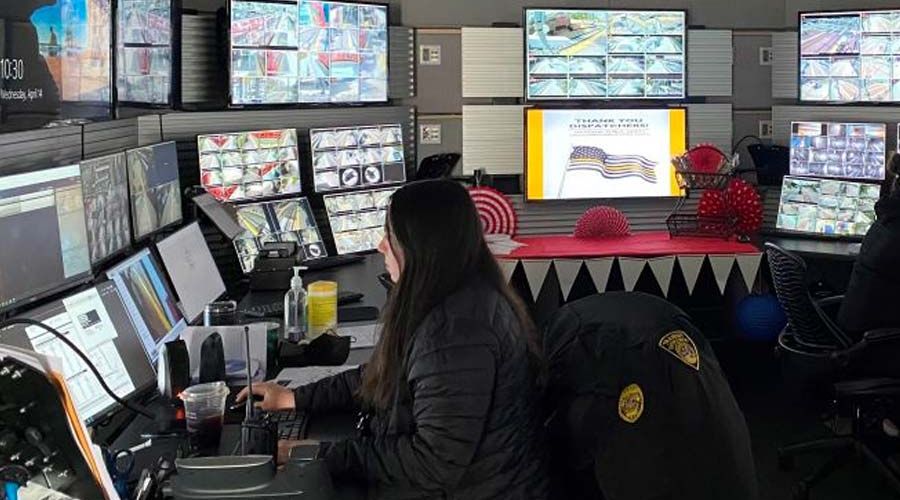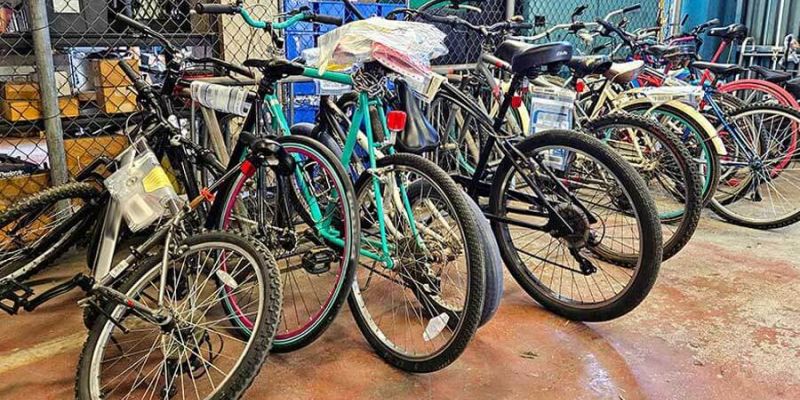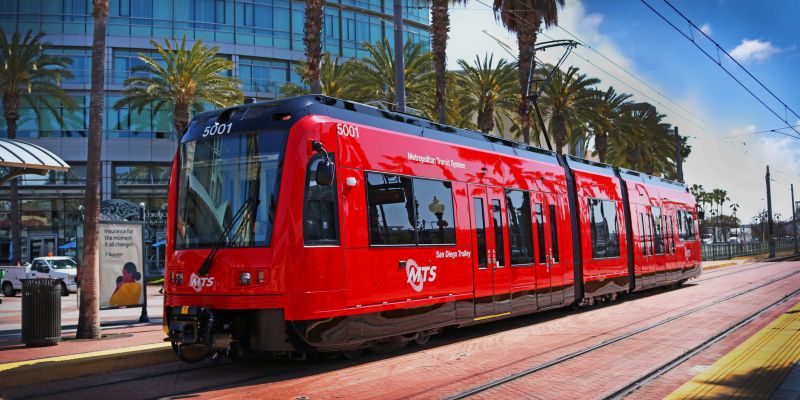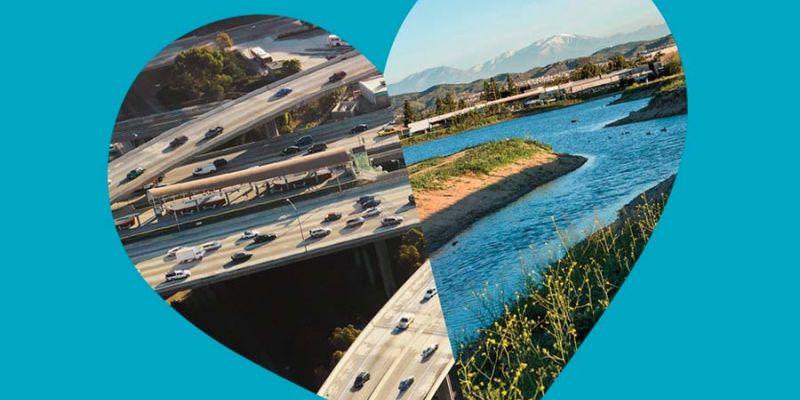
It’s a natural question to have when thinking about taking public transportation: What do you do when you’re on board a vehicle, or at a station, and need public safety support? Luckily for MTS riders, Security Dispatch is available 24/7 via text (619) 318-1338 or phone (619-595-4960).
“The dispatch role is unseen – it’s very unknown as to what we do and how we help,” says Dispatch Supervisor Jessica Burris, who has worked for MTS since 2017. “You can’t physically see us, but we are here to help and are doing what we can do to help make patrons safer on the line.”
April 11 – 17 is National Public Safety Telecommunicators Week, and in honor of that, we’re shining a light on our Security dispatch team.
Throughout the service day (and beyond), MTS dispatchers are fielding phone calls from patrons and law enforcement contacts, managing the radio system with field officers, monitoring video cameras at stations/on board, serving as a liaison with our Trolley Central Control and more. “We’re ready to assist patrons and officers with whatever issues may arise,” says Burris. “Patron and officer safety, that’s our main concern. To be able to provide a backbone for them to know someone is listening to them and their concerns.”
What are some of the challenges being the eyes and ears behind the scenes? “Your day is not yours – you don’t plan your day – it’s planned for you,” says Burris, noting that dispatch can be a stressful role. Perhaps that’s why she says one of the most important qualities dispatchers have is the ability to make decisions on the drop of a dime, and the ability to be supportive to people on the other end. “We try to be the calm in the storm,” she says. “We can see what’s happening and can call and issue help, but we can’t physically be there. When adrenaline is high we try and help others stay calm and remain calm.”
When MTS patrons utilize the Ride Assured contact lines, they’ll be connected with one of our dispatchers, located within our central control command center. Dispatch will send an officer on any report, but they are prioritized based on the type of incident report, as well where the nearest train team or station officer is to the report.
What types of incidents does dispatch get the most calls for? “Right now, it’s a lot of no mask texts and phone calls,” says Burris, but other common calls include loitering at bus stops and disturbances on board. The dispatch team also fields customer service calls beyond normal business hours, specifically for support for ticket purchases or when a ticket machine isn’t working.
Burris notes that sometimes patrons get frustrated when calling for assistance “because they need help, but we need some specific information and will ask a lot of questions to get the right info to security members and to make sure we’re addressing the correct passenger.” If you’re contacting dispatch, here’s what Burris says is the most important information for you to share:
- Vehicle number you are on (this will be a three or four digit number toward the front of the Trolley or bus, and posted on the exterior of the vehicle as well)
- Direction of travel (downtown or outer destinations on Trolley lines)
- What is specifically occurring?
- A description of the individual (Burris says a clothing description is really helpful to help officers in case that the incident is no longer active at the time they arrive)
At the end of the day, Burris wants people to know that dispatch is always available to them, ready to help how they can. MTS users should keep the Ride Assured numbers handy in case they ever need support on board:
- Call or Text: 619-595-4960
To all our dispatchers, thank you for your efforts to help keep the system safe, 24/7, 365.



